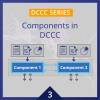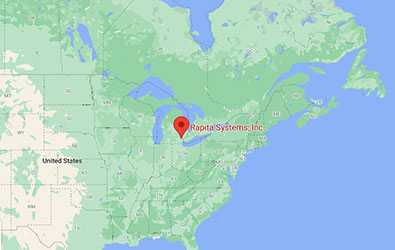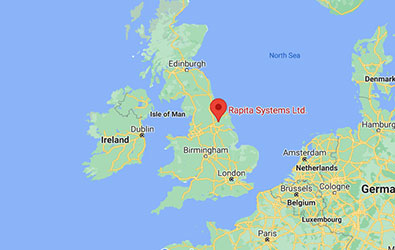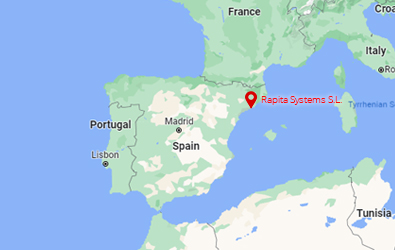In AMC 20-193, the official guidance document for multicore aspects of certification for ED-12C projects, an interference channel is defined as "a platform property that may cause interference between software applications or tasks". This definition can be applied to a range of ‘platform properties’, including thermal factors etc.
Of these interference channels, interference caused by the sharing of certain resources in multicore systems is one of the most significant in terms of execution times. Interference based on shared resources may occur in multicore systems when multiple cores simultaneously compete for use of shared resources such as buses, caches and main memory.
Rapita’s solutions for multicore timing analysis analyze the effects of this type of interference channel.
A very simple example of a shared resource interference channel is shown below:
In this simplified example, tasks running independently on the two cores may need to access main memory simultaneously via the memory controller. These accesses can interfere with each other, potentially degrading system performance.

 SAIF Autonomy to use RVS to verify their groundbreaking AI platform
SAIF Autonomy to use RVS to verify their groundbreaking AI platform
 Hybrid electric pioneers, Ascendance, join Rapita Systems Trailblazer Partnership Program
Hybrid electric pioneers, Ascendance, join Rapita Systems Trailblazer Partnership Program
 Magline joins Rapita Trailblazer Partnership Program to support DO-178 Certification
Magline joins Rapita Trailblazer Partnership Program to support DO-178 Certification
 How to certify multicore processors - what is everyone asking?
How to certify multicore processors - what is everyone asking?
 Data Coupling Basics in DO-178C
Data Coupling Basics in DO-178C
 Control Coupling Basics in DO-178C
Control Coupling Basics in DO-178C
 Components in Data Coupling and Control Coupling
Components in Data Coupling and Control Coupling
 DO-278A Guidance: Introduction to RTCA DO-278 approval
DO-278A Guidance: Introduction to RTCA DO-278 approval
 ISO 26262
ISO 26262
 Data Coupling & Control Coupling
Data Coupling & Control Coupling
 Verifying additional code for DO-178C
Verifying additional code for DO-178C
 DO-178C Multicore In-person Training (Bristol)
DO-178C Multicore In-person Training (Bristol)
 XPONENTIAL 2025
XPONENTIAL 2025
 Avionics and Testing Innovations 2025
Avionics and Testing Innovations 2025
 DO-178C Multicore In-person Training (Fort Worth, TX)
DO-178C Multicore In-person Training (Fort Worth, TX)














